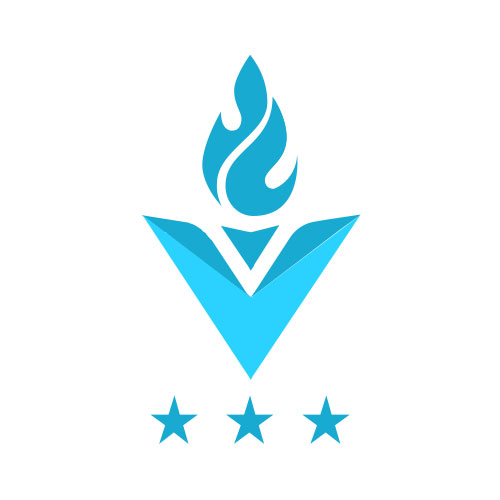Creating content that resonates with your audience can take time and effort to create. As small business owners, our time is extremely precious but I have noticed a trend with small business owners that has resulted in a lot of wasted time trying to figure out what sort of content we should be creating to share with our audiences. There are so many different content formats, so how do you figure out which is best for your brand? Today’s guide will break down the content formats and hopefully guide you to the right fit for your organization.
5 Different Types of Content Marketing formats Explained
Content marketing is an ever-evolving field. To stay ahead of the competition, it is essential to know about the different types of content formats that are available.There are many different types of content formats available, including blogs, newsletters, social media posts, articles, emails, and more. All of these options involve some level of writing content, even if you are doing a video for your audience, you will likely start by writing the video outline or script. The good news is, AI writing assistants can produce text in these formats with little to no human input. It can be time-consuming to learn how to write in all of these formats on your own.Today I am going to highlight 5 key content types and how you can use them for your small business. Afterward, I will run down some other options you may want to consider as your business grows and you become more comfortable creating content on a regular and consistent basis.
1. Blogging Content
The first content creation style I want to share is blogging. A blog is a feature you can add to your website that displays articles and commentary on a specific topic or theme. The blog owner can write entries, post videos, pictures, and audio clips to share with their audience. You also have the ability to determine just how long or short your content will be. There are no limitations as some social platforms have.
2. Podcast Content
Podcasts are audio or video files that you can download or stream from the internet onto your computer or mobile device. They usually consist of recordings of speeches, interviews, music performances, news broadcasts etc., which are then published online for listeners to enjoy at their convenience.
3. Video Content
Video content is effective because it allows you to connect with your target audience in a visual, engaging way that isn’t possible through many other types of content. Video content is a great way for people to get to know you and your personality. When building a brand, a huge part is people getting to know you and video content is a great way to do that.
Not everyone enjoys making videos. Putting yourself out there is tough. Getting familiar with the different types of video content you can create is important to help you relax and enjoy the experience. There are different types of videos you can create. Here are a few examples of the type of video content you can create.
- Short explainer videos that are 60 seconds or less serve as a quick, simple way to quickly educate prospects on a topic
- How-to videos help customers understand how to solve a very specific problem
- Demo videos can help customers quickly see the capabilities of your product
- Interviews enable your customers to see the human side of your business. And Customer interviews get them to see what they themselves could achieve.
- Long-form videos can tell a story in a way that connects emotionally with the audience
- Quick social media clips attract attention and drive engagement
- If you want to start by not being on the screen you can do a walking behind the scenes tour of your store or process where people don’t see your face but they see what you offer and hear your voice.
- You can also do a voice-over and add some b-roll that you create, or some that you can purchase, that illustrates what you are sharing.
4. Social Media
With billions of active users every month, social media may be a key tool in your content marketing arsenal. The main benefit of social media is direct engagement with your audience. It’s a real-time feedback loop to help you understand what your audience cares about and to have direct conversations with them to dig deeper. For certain brands, social media can also be used to guide your audience to sales, promotions, and events. In addition, social marketing gives you a direct path to distribute your content to your audience, and to express your brand personality in the process.
5. Webinars
Webinars are a content marketing tool that can help you educate your prospects and customers to help them better understand a variety of subjects, such as how to best use your product, expert insights on a specific topic, how to overcome a particular problem, etc. Most webinars tend to be on the longer side (30+ minutes), since they contain a strong educational element. Similar to podcasts, you can use your webinar to interview actual prospects, helping your webinars to perform double duty. Again, you’ll be able to generate unique content while building a relationship with a new lead. Another key benefit of webinars is that they allow live interaction between the presenter and the viewers. Viewers can ask questions and the presenter can respond to them in real-time, which helps create a more personal connection than other, more static forms of content.
Other Content Marketing formats to Consider
The seven formats I have included are the most popular and common formats you will see from brands. However, they aren’t the only things you can do. You may also see things like.
- Templates
- Case Studies
- Infographics
- Customer Testimonies / Online Reviews
- White Papers & eBooks
- Interactive Content
- USG
- Gifs & Memes
Which Content Format is the Right Format for You?
The content format you choose is a key decision when it comes to marketing your business. There are many formats to choose from, and each has its own benefits and drawbacks. The key is to figure out which format is best for you and your brand. If you aren’t sure about the answer, I invite you to schedule your Free Marketing Consultation Session with me today. Together we can work through your business goals, the resources you have access to, and what works best for your audience.














